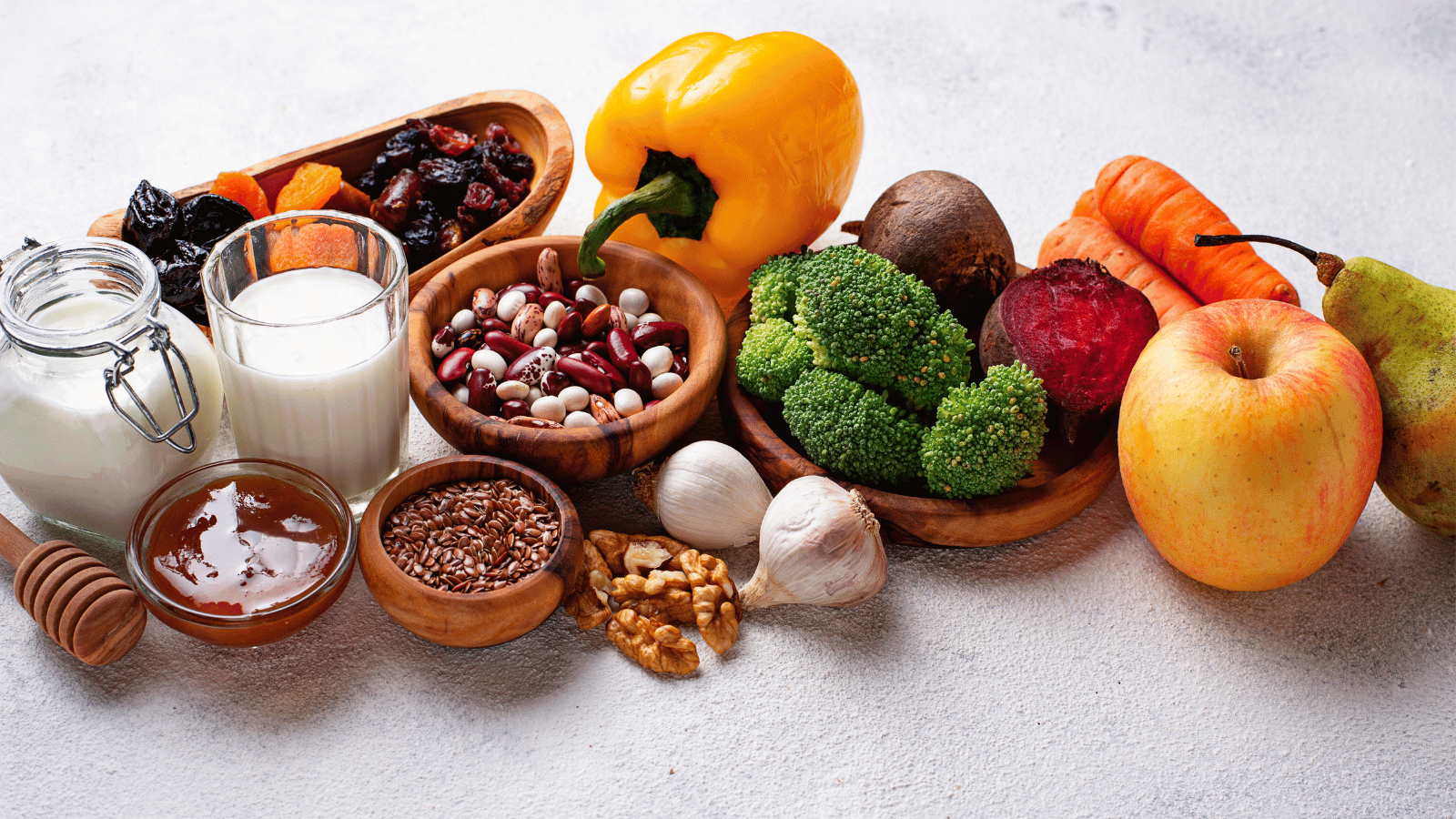Could improving your gut health help you lose weight?


Hear ‘gut health’ and your mind might automatically jump to thinking about how healthy your digestive system is, right?
But once you learn that a whopping 95% of the body’s supply of a mood-stabilising neurochemical called serotonin is actually produced in your gut by the bacteria that live there, it becomes clearer that ‘gut health’ is about more than digestion.
In fact, looking after it can do everything from help you sleep better and feel happier and it might even improve your body’s ability to fight bugs and viruses, too.
So what about weight – and specifically, if you’re keen to lose some? Does the makeup of your gut bacteria have a role to play in influencing that? According to the latest research, the answer might be ‘yes’.
So what does the research say about gut health and weight loss?
While earlier research has already shown that the composition of gut bacteria tends to differ quite significantly between people who are leaner and those who are carrying more weight, more recent studies have focused on if and how gut bacteria influences weight loss. And the results are interesting.
In particular, a study published in 2022 suggests that it’s a person’s gut bacteria that’s one of the key things that predicts how much body fat they’ll lose when they’re following a low-energy, weight-loss diet.
Similarly, research published in 2021 found that the presence of specific ‘good’ microbes in the guts of people trying to lose weight by following a year-long weight-loss program, directly affected how many kilograms they were eventually able to lose and keep off.
The upshot? While good gut health isn’t a magic weight-loss bullet or a quick fix, it may help your weight-loss efforts – and it certainly won’t hurt, not when you consider all the other health benefits of making the effort to keep the bacteria that live in your gut in tip-top shape.
How to give your gut health a makeover
Do you want the good news, or the great news? For starters, Australian research shows that with some smart dietary choices, you can change and improve the composition of your gut bacteria within a matter of days. And for seconds, when you become a WeightWatchers® member, you’re not only on track to reach your weight-loss goals, you’ll be doing good things for your gut health, too. It’s a win-win!
That’s because research shows how a diet that’s good for your gut is one that’s full of plant-based whole foods, like fruit, non-starchy vegetables and beans, peas and lentils – and at WeightWatchers, they’re all ZeroPoint foods. That means that when you eat them, you don’t have to weigh, measure or track them – no matter how often you reach for them.
The reason plant-based foods are so good for your gut? One explanation is that they often function as prebiotics, given many of them are rich in a particular type of dietary fibre that passes undigested into the large intestine, where it gets the chance to act as fuel for gut bacteria, promoting the growth and activity of beneficial varieties.
And according to the CSIRO, it’s prebiotics, in the form of whole foods like veggies and fruit, that have the strongest evidence behind them as being beneficial for gut health.
5 lifestyle habits to help improve your gut health
The good news keeps coming, because there are a few other simple-to-implement lifestyle habits that’ll help improve your gut health, too – including these strategies.
1/ Eat a wide variety of plant-based foods.
When you’re a WeightWatchers member, you’re free to eat as many of your favourite ZeroPoint foods as you like, but for the sake of your gut health, it’s a good idea to include a wide range of them, rather than eating the same handful on rotation. And when you do choose to enjoy ZeroPoint foods, we recommend sticking to your usual portion sizes.
Research shows that people who eat 30 different plant foods over a seven-day period have a much more diverse population of gut bacteria (and that’s a good thing!) than those who only consumed about 10 different types of plant foods, weekly.
2/ Eat some fermented foods regularly, too.
This includes things like sauerkraut and yoghurt. A 2021 study shows that consuming fermented foods is another thing that can help to increase the diversity of the bacteria that set up house in your gut.
3/ Prioritise your sleep.
Research shows that gut health can impact sleep quality – but it works the other way around, too. Research also shows that when you miss out on the recommended amount of sleep per night (which for the record is roughly seven hours or more of shut eye) for just a few nights in a row, that can disrupt the ratio of healthy-to-unhealthy bacteria living in your gut. The takeaway? Don’t short change yourself, when it comes to sleep.
4/ Get moving.
According to research, when you do something physically active regularly, the volume of healthy bacteria living in your gut grows in size, while levels of unhealthy varieties, fall. Try to be active every day, aiming to achieve at least two-and-a-half hours of moderate-intensity activity each and every week.
A final piece of advice? While the health of your gut bacteria can improve significantly within a surprisingly short amount of time, research shows the opposite is also true. So for the sake of your weight-loss goals and your overall health and wellbeing, keep those gut-friendly habits up.
